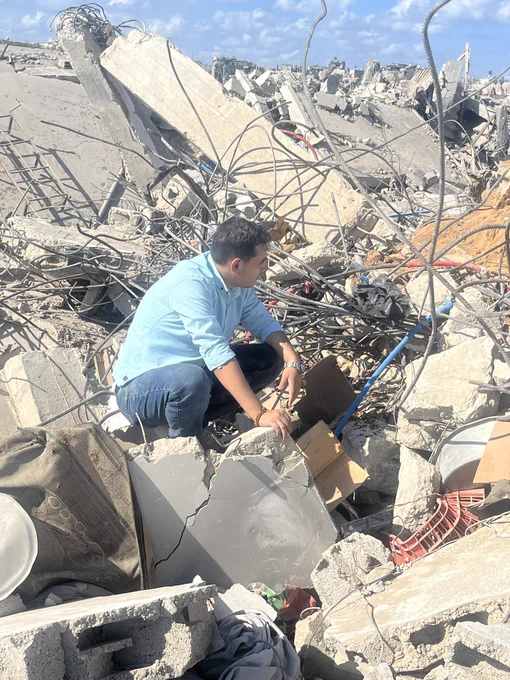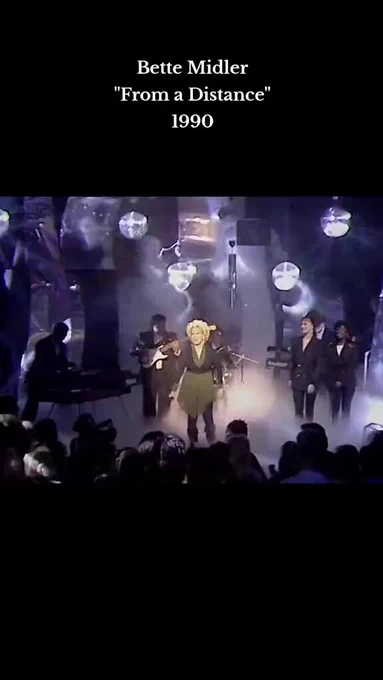988 National 3 digit suicide hotline # NEEDS TO BE FUNDED/ACTIVATED. Believer in democracy equal opportunity. Universal Health Care. UPDATE MEDICAL SYSTEMS
California, USA
Joined July 2010
- Tweets 21,818
- Following 731
- Followers 386
- Likes 78,362
char barton retweeted
I came back today. I thought I had known despair before, but what I saw today is beyond despair.
It is not grief, nor horror, nor pain. It is something colder, a stillness where even God seems to have withdrawn His hand.
The sky was impossibly blue. The kind of blue that mocks you, that makes you wonder whether beauty itself is a crime.
I walked through streets that no longer exist, streets that were my childhood.
They are now a wilderness of stone, wire, and dust.
A man stood on a heap, a neighbor, I think.
He pointed and said, “It’s here.”
I asked him how far.
He looked down.
And I understood: my house was beneath his feet.
I lifted my phone, as if the machine could recognize what I could not. The screen glowed; there was nothing to see. The earth had swallowed the distances. Even the smell of home was gone. It was as if the thread connecting me to life itself had been cut.
I dug with my hands. The dust burned. My palms bled.
My mother had told me: “Search for anything we can save.” And so I obeyed her like a son obeys the last voice that still believes there is meaning in obedience.
From a house that once cost my father one hundred and twenty thousand dollars, a lifetime of labor, of hope, of decency, I found two things:
a knife, and a pillow.
Two relics of civilization. One for necessity, one for illusion.
That is what remains of man.
I sat in the ruins, the blue of my shirt turned gray with ash, and I thought:
this is the end not of a city, but of meaning itself.
I thought of my parents, their hands, their faith in honest work.
How will they bear this? How will any man bear seeing his father’s roof turned into dust by a stranger’s hands, hands that will never know the names of those they destroyed?
But what tears me apart more than ruin is silence. No one speaks to us.
No one tells us where to go, who will rebuild, or who is responsible.
The politicians talk of victories, the generals of strategy, the world of peace and progress.
But none of them live here among the ashes. None of them stand where I stand, sifting through their own dead.
And those who claim to represent us, where are they? Where is the money they collected in our name, the promises they made before the cameras, the slogans they wrote while we buried our children?
Who among them will come to this ruin and say: Forgive us, we failed you?
Not one.
They sit in offices with clean shirts, counting our corpses as figures on paper. They say “reconstruction,” “aid,” “negotiations,” as though the vocabulary of power could fill the emptiness of a mother’s bed.
I tell you the truth: there is no crime greater than indifference.
The murderer at least acknowledges the victim.
But those who look away, they kill the soul itself.
I brushed the dust from my shirt, though I knew it was useless.
I wanted to see if there was still color left in the world.
There wasn’t.
The blue had become the color of mourning.
I looked at my hands. They were shaking, not from fear, but from the unbearable realization that we have become expendable to the world.
Our suffering is entertainment, our death a policy, our endurance a statistic.
I wept then, openly, shamelessly.
I, who once believed in the dignity of suffering, now see that dignity itself has been annihilated.
There is nothing noble in being forgotten.
If you are reading this, do not admire the style or the language.
Lower your head, and weep.
Because this dust, this silence, this cry, is what remains of us.
char barton retweeted
To play quietly is sometimes more powerfull than just running notes and shredding - it’s naked, it’s raw - it’s perfect! Didn’t think this song could get more beautiful, until I heard this version, simply sublime. Mark always bring a masterclass to his writing and playing. One of the best musicians ever to grace our hears. Real Live Roadrunning is a concert film recorded live on 28th June 2006 at the Gibson Amphitheatre in Los Angeles towards the end of Mark and Emmylous’ tour in support of their critically acclaimed album, All the Roadrunning. #markknopfler #emmylouharris #direstraits
char barton retweeted
Andrea Bocelli’s voice rising with the Ave Maria in a packed St. Peter’s Square, as a Pietà of Michelangelo made of drones shone above 💫
A true recipe for goosebumps
Rome, Italy 🇮🇹
char barton retweeted
Imagine building this sanctuary at the end of the 1400s with only one tool: your hands
Madonna della Corona, Italy 🇮🇹
char barton retweeted
It’s Sunday
Stop scrolling, if you will
Take a 5-minute pause from your daily rush
Listen to Bocelli’s Ave Maria
Let your thoughts drift
If you can, say a small prayer
And begin your day with a heart full of beauty ✨
char barton retweeted
Queen at Live Aid. Freddie Mercury owning the stage. Quite possibly the most famous moment in live performance history. And not a single mobile phone in sight.
#LiveAid40
char barton retweeted
Kerr county sheriff changes his mind about Mexicans after they save the lives of his daughter and grandkids
char barton retweeted
Once again when things hit these people personally they see the light‼️
They should be treated with respect in the first place‼️ FFS
































